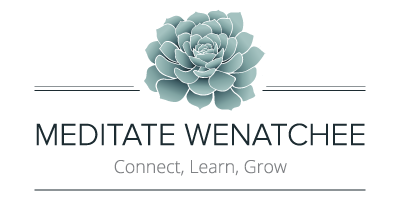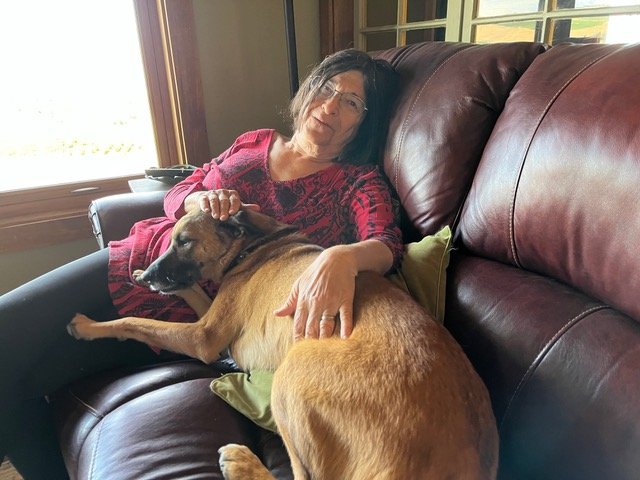Wisdom Embodied—Meet Elizabeth
If you’ve been following my social media campaign this month you know I have been writing about the process of cultivating wisdom. I introduced my intention here in July’s newsletter and now to round out the month’s topic I decided to interview someone in my own life who embodies this trait. I am honored to share the words and wisdom of my neighbor and friend, Elizabeth Revelise.
When you meet Elizabeth you immediately notice two things—her warmth and her willingness. She is a southern woman, and I don’t know about you, but I’ve met a few southern women who pretend to be warm— gushing with abundant “bless your heart’s” and then there’s those who actually mean it with every inch of their being—the latter is my neighbor Elizabeth.
She is also abundantly willing. Willing to solve problems, help anyone or any animal in need, and willing to bake a cake for the love of sharing good food. Luckily she was also willing to sit and sip tea with me on her deck while I asked her about wisdom.
We began the conversation with me asking, what is wisdom? And how has it been alive in your life experience?
She said, when I was a younger woman I used to always joke with my friends, I am a tribal elder in training. Most people have chosen a value, it could be knowledge, freedom, wealth. I chose wisdom as a value at a young age, because I perceived myself as not having it.
MW: How did you perceive not having it?
Elizabeth continued, It looked like what we know now as a developmental difference, maybe an autism or an autism spectrum disorder. I never knew what the right thing to do was under any circumstances—as a child. My experiments mostly failed and I would end up feeling awful. I perceived myself as not fitting, and for some reason valued wanting to fit, but I didn’t know how. All I knew was, I wasn’t what was required of me…in school, in church, and I got a lot of messages like that. I had to find a way to lift above that in order to live a life not based on pain and depression.
I chose a tribe, people who loved and found me good company, despite the fact that I couldn’t do normal things. I realized that my tribe extends to my ancestors as well. At some point the joke about being in training as a tribal elder, was not a joke.
MW: did you have role models that showed you what the wise self could be?
Yes I had them because I asked for them. I asked spirit, or whatever being seemed to be in power, to help me with this work. Elizabeth went on to describe her experience and relationship with the spirit world and how they offered protection, support and a way forward. She said, the spirits move me.
MW: if you could deconstruct the word wisdom, what would be the components that point to it?
It’s like a kingdom, a space within—where you go when you’re looking for an answer. You can go there and ask for clarity and if you have it in the stack of experiences in your body and mind, you can find it there. Or sometimes through inspiration or by working with the breath. During my time there was a popular therapy called re-birthing or re-breathing and it allows you to access more of what is submerged in your experience. Sometimes we have to go through the things that have been suppressed to find the meat of the experience. It’s all in there, all the things you’ve ever done and experienced, it is accessible to you…by seeking and practice.
That said, most people have to find a way to feel safe first. To allow yourself to explore these things, you have to be willing to accept a certain amount of pain and then you have to be willing to practice. Focus on it and practice it. Then after a while you can just let go, because you have practiced and focused and then it is your way of being, but it does take some effort!
As our tea was nearly finished, she piped up with this nugget. I have also found that if I am being wise, I am not doing anything fast!
MW: what does that mean to you?
If I am required to be wise, I’m not reactive. My brain is all about solving problems and often the things I faced that I thought were problems, were not, they were another person in process. This is a huge lesson, the Sufi’s teach, sometimes you should not be the wise person for another, you should let them make their own path. Your detachment and your ability to be the spiritual part of yourself, is maybe more important than being the hero, or the samaritan.
MW: what part of wisdom involves action?
Elizabeth said, wisdom is knowing what to do and when. Timing has always been really hard for me, so what happens lately is instead of doing, I sit and don’t do, and its’ pretty surprising how often it turns out to be the right thing.
MW: how do you know?
The result is, you like yourself more and your life gets easier.
MW: What question would you offer as a prompt to others on this topic of cultivating the Wise-Self?
What do I want for the last 10-years of my life?
MW: why the last 10-years?
Because I really feel this lifetime is made of a process of experiences, and I think that one needs to see that one is getting a reward, or working toward a rewarding time. Life is sad a lot of the time. There’s plenty of joy, but you can’t be joyful all of the time. Head for satisfaction for all the things you’ve learned and gone through. A culmination that makes sense to you, so that when you’re looking back at your life, you can see what was valuable, what wasn’t, and feel you’ve done enough things to earn a good sense of satisfaction.
I left her and our conversation feeling heart-full. Filled with meaningful connection and gratitude for this deep and worthy exchange. Maybe wisdom isn’t a thing in your world, or you don’t perceive it to be, but maybe that’s not the end of the story. Just as Elizabeth shared, she chose wisdom and put intention into action to find her Wise-Self, her tribe, and her way. If there is a living example of wisdom, here she is. Beaming her smile to the world, from her home in Malaga.

